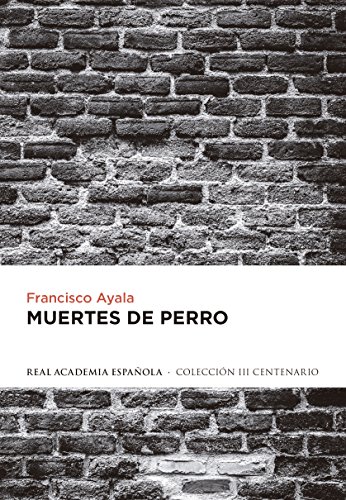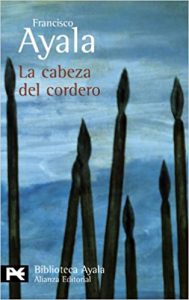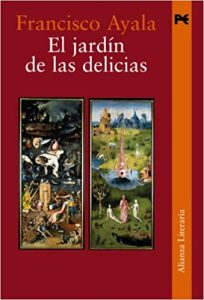We can say that Francis Ayala nothing was left to write. If the time we have can be associated with some kind of mission, Ayala had all the hours in the world. His work is in tune with the significance of his vital testimony since he survived a whole XNUMXth century completely, a century in which he traveled a lot and was always close to the most significant moments in the history of Spain, Europe and Latin America.
In addition, the fact that he could prolong his days until he went through an entire decade of the XNUMXst century can be assumed as a fortunate destiny that ended up making him the last great chronicler of the virulent end of the millennium.
Obviously, now looking at Francisco Ayala's bibliography becomes a complete overview of Hispanic literature in which he narrated realities and fictions, novels and essays, always with an avant-garde point of view in the narrative and critical in the reflective, steeped in trends and new ideas that moved him towards that pioneering and transforming will of one of the greatest humanists, thinkers and creators in our history.
Top 3 recommended books by Francisco Ayala
Dog kills
Ayala's narrative constantly appears to her essay vocation, resulting in the end a social, political and moral intention in all her characters and settings.
I rescue this work in the first place for its critical value of power, that space in which the human being ends up becoming the worst thing he could have dreamed of.
Because power corrupts and justifies every act in reason. For Ayala, the sale of the spiritual to the most prosaic interest always ends up stripping man in the face of his most perverse contradictions.
The character of Antón Bocanegra is that prototype of a man raised from his miseries and capable of ruling an American country (The novel is written in Ayala's exile in Puerto Rico) with the sole will of his pride. The story is told by Pinedo, an invalid observer of what happens.
The head of the lamb
A set of five stories of great intensity about the Spanish Civil War. A book banned for many years and that, once freed from censorship, began to circulate in Spain with that feeling of triumph of creation in the face of the authoritarianism of a finally exhausted regime.
Its first edition was held in Buenos Aires in 1949. Currently it composes those five stories mentioned above and that have the thematic unit around the war in Spain in the mid-twentieth century.
And I say the middle of the XNUMXth century because the work extends to the before and after, to the consequences of both the previous and post-war tensions and the imposition of that unique truth of the victor, imposed as inquisitorial dogma. This classic work by Francisco Ayala, above all, expressed the painful memories turned into characters and settings.
The Garden of Earthly Delights
Published in 1971 as a kind of compilation of experiences and impressions of the Ayala focused on the lyrics and on the social and political demand for a Spain that is still Francoist.
A book with the aroma of a biographical anthology of the man already close to old age (despite the fact that he still had more than 30 years to live) and filled with that wisdom of experience, that prism of the exile who observes without any intoxication what happens in their homeland.
A story made into a literary and existential mosaic with edges around fundamental ideas such as love, loss, melancholy and also with purely social aspects such as power, authoritarianism, and social systems. Everything is covered by artistic references, such as the Garden of Delights itself, of which Ayala makes narrative transmutation.



